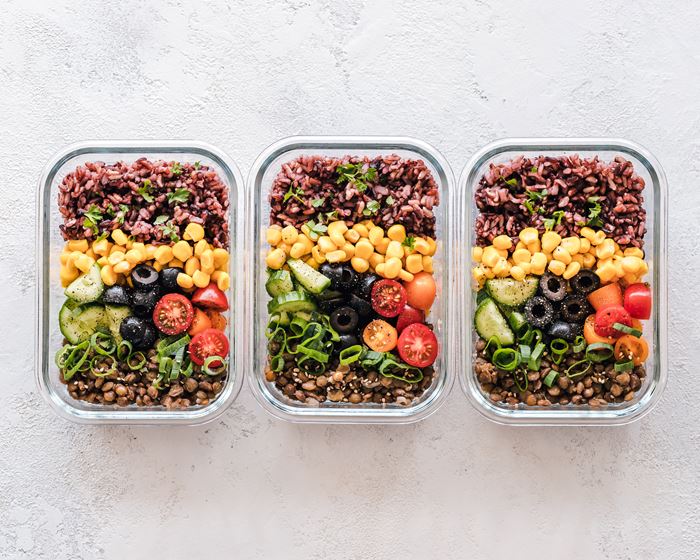Meal-prepping isn’t just a social media fad: it can truly help you save time, money, and empty calories. Especially in the midst of a pandemic, ensuring you have access to a healthy diet, without breaking the bank, is imperative to keeping you safe and focused on studying.
At its core, meal-prepping is about cooking large quantities of food at once to eat throughout the week. Most people like to complete their cooking on Sunday evenings in preparation for the next few days, depending on what’s on the menu. Most meal-prepping guides suggest making enough food to last you three to five days to ensure your food is fresh and appetizing. There’s no use in spending ingredients on a dish if it’s not appealing after sitting in your fridge for six days.
Keep it simple
If you’re new to cooking, start simple. Try these winning combinations that won’t be overly complicated:
- A big pot of white rice, roasted chicken, and steamed broccoli
- Burrito bowls with black beans, corn, and ground beef
- Spaghetti and meatballs
- Ham, cheese, and crackers with a side of fresh fruit
The internet is filled with budget-friendly recipes that don’t require a lot of equipment or expertise.
Check out our blog post on how to spice up your chicken dinners for more cooking advice.
Compile a list of recipes you want to eat each week and aim to cook recipes that use overlapping ingredients. Be sure to make a list of all the ingredients you’ll need, and their quantities, before you head to the store.
Grab a friend
Coordinating prepping with your roommate can keep things exciting and cheap! Cooking together can also be a great way to bond with a new roommate. Take turns with prepping recipes you grew up eating to add variety to your meals. By planning trips to the grocery store together and splitting the bill, you can avoid the emotionally taxing argument of using each other’s items in the pantry or fridge while saving money on bulk items.
Get the right tools
Investing in durable containers is a must when it comes to meal-prepping. You’ll want your containers to meet a few requirements:
- Microwaveable or oven-safe
- Durable enough to stand up to the textbooks in your bag
- Reusable
- Dishwasher-safe
- Designed to house foods separately
Glass containers with built-in dividers are very popular (plus, they’re eco-friendly!) Japanese-inspired “bento boxes” provide stackability, in case you have some items you’d like to remain cold while the rest is microwaved. It’s best to avoid purchasing plastic containers, as they tend to break and stain more easily. If you must use plastic containers, try upcycling containers from food you’ve already purchased, such as sour cream and butter tubs.
So next time you think about hitting the Chick-fil-a on campus for the third time in a week, consider meal-prepping. It can be a lifesaver for a busy college student on a budget and with these tips from Sunrise Village to keep you on track, you can make your Fall semester the most successful one yet.
